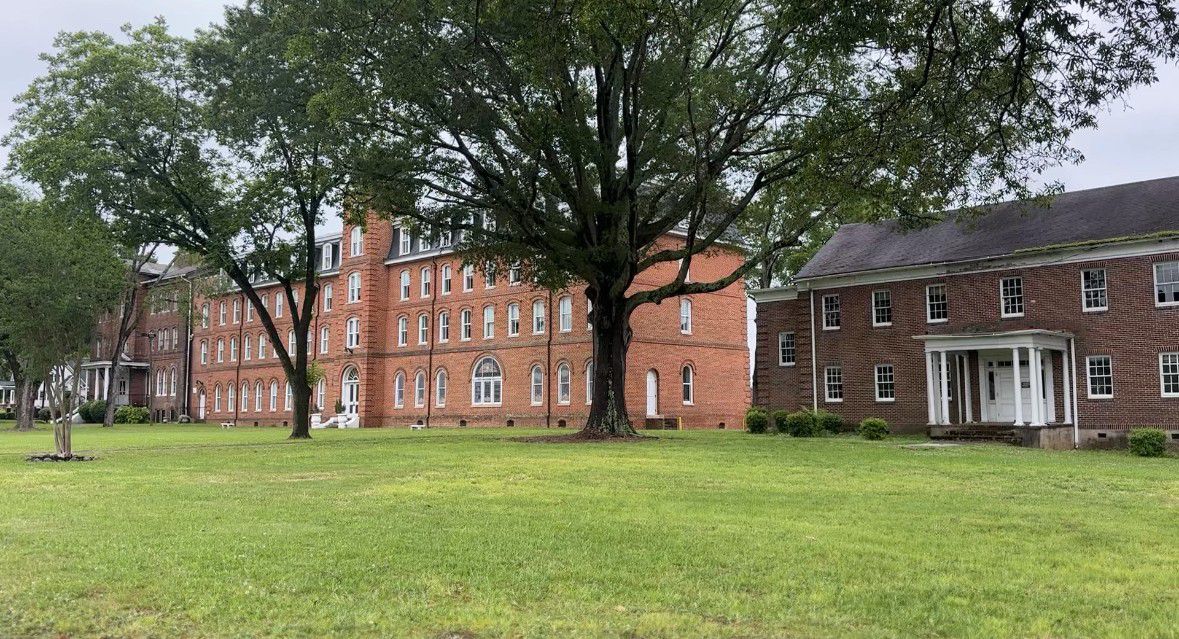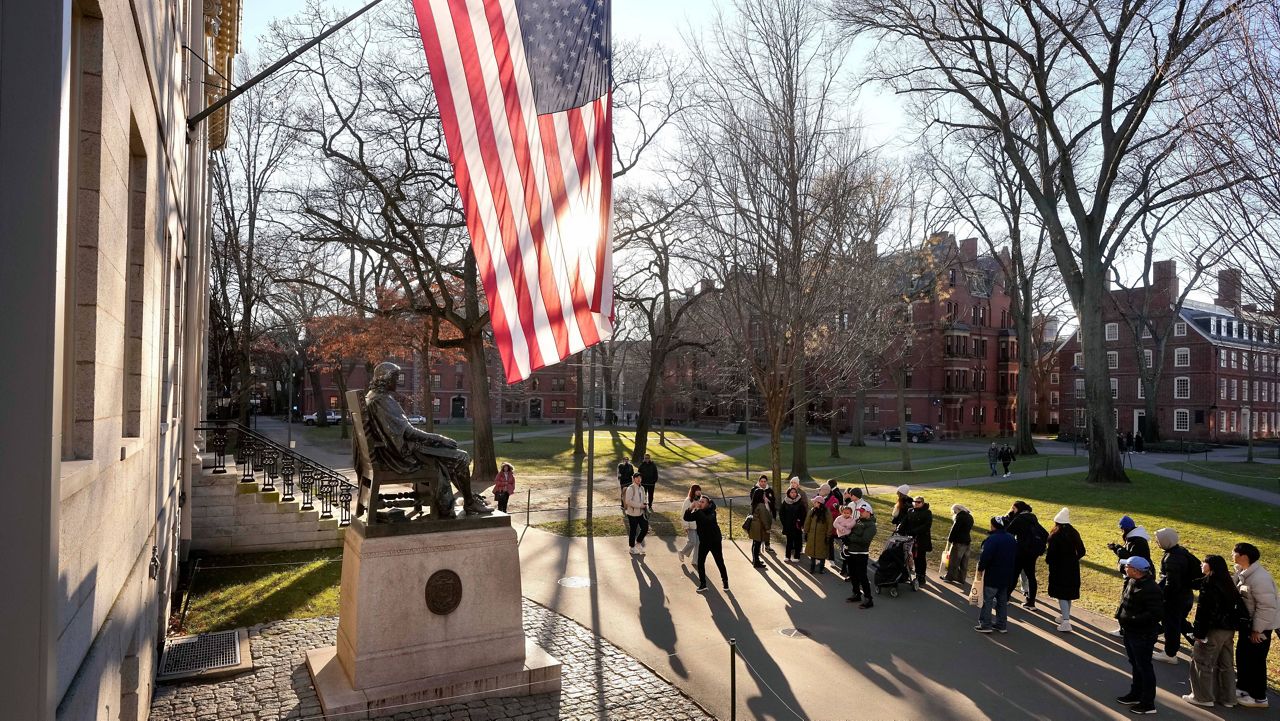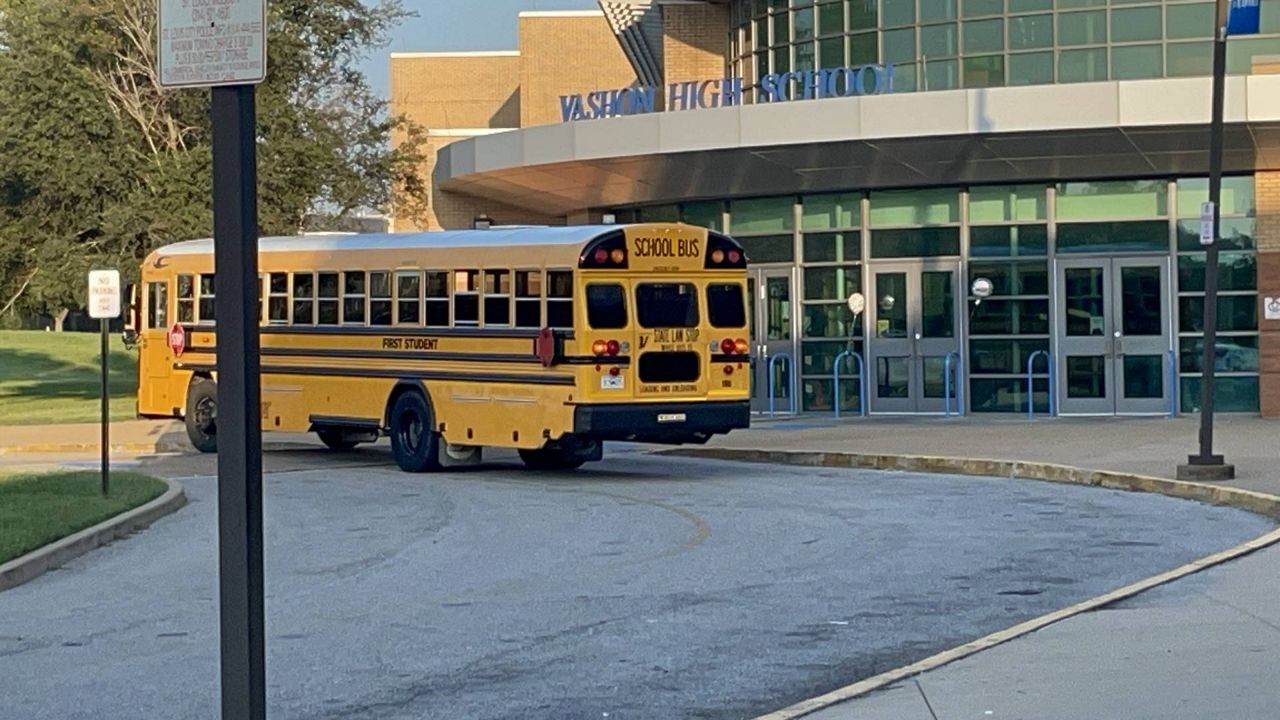RALEIGH, N.C. — Artificial intelligence is reshaping the landscape of education, and educators at Conn Elementary Magnet School are at the forefront of the transformation.
Amid the rapid evolution of AI tools like ChatGPT, conversations have shifted from whether to ban it to discussions on how it can enhance both student and teacher experiences.
“A year ago I knew that this was going to be a game changer,” said Cari Ann Brick, the school media specialist at Conn Magnet Elementary School. “If you weren’t using it, then you would be left behind.”
She shares a passion for teaching and technology with Dan Gridley, the school’s magnet coordinator. The two chat almost every day about new things they’ve come across and ideas to integrate them for more impactful instruction.
“Just yesterday I noticed a kindergarten teacher had ChatGPT open on their laptop,” Gridley said. “We were coming up with different STEM activities and magnet embedment opportunities.”
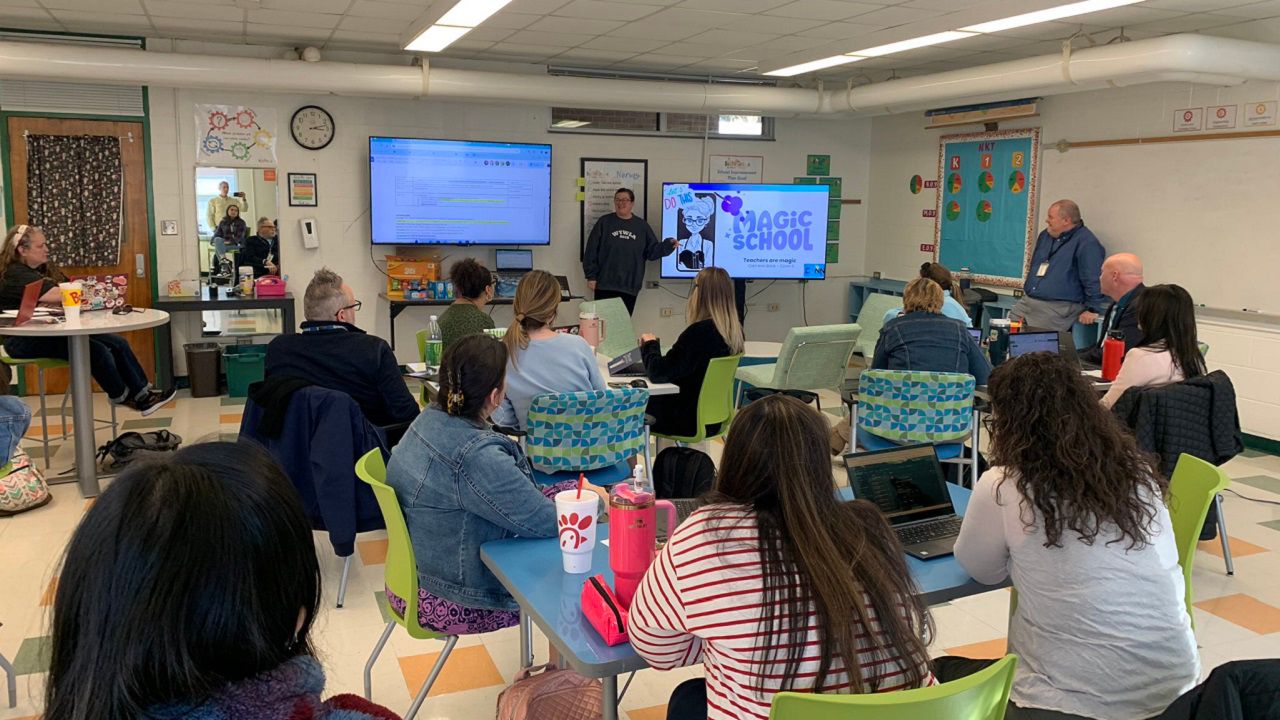
Brick has utilized ChatGPT as a springboard for ideas for engaging social media content, as she manages Conn Elementary School’s X account.
“Just coming up with 144 characters, something witty, sometimes you could be at a loss,” Brick said.
One tool that both have experimented with is a platform called Magic School AI. Developed by a former teacher, it can help save hours of time by helping generate lesson plans, quizzes, assignments and more.
Brick demonstrated the YouTube Video Question Generator feature. She copied and pasted a link from an educational video on YouTube she may incorporate into a class.
“It takes a moment and then it pulls out the main questions that’s most important in that video. And then it provides the answers for you and also at what point in the video where those answers are,” Brick said.
The tool also allows educators to customize the questions for grade level. For instance, she can ask the tool to tailor the questions for fifth-graders and it’ll automatically change the language and reading comprehension level. It’s not a simple copy and paste as whatever comes out is thoroughly reviewed.
“It’s a guide. It helps you with the whole process,” Brick said. “But you have to be able to review and proofread anything that you use before you implement it in your lessons or in school.”
Gridley turned to AI with his son Owen, a fourth-grader, to help with a school podcast.
“We had an opportunity to use ChatGPT to get some ideas for a script for his commercials about our upcoming dance and also our 5K,” said Gridley, who helps oversee some of the podcast recordings. Yes, the school podcast does have “commercial” spots!
While students don’t use AI tools in school, Owen Gridley has utilized it at home for ideas for a book he’s writing about an explorer who gets stuck on a foreign planet. His father envisions tools like ChatGPT serving as a thought partner.
“We also want to utilize the North Carolina Department of Public Instruction draft recommendations,” Gridley said.
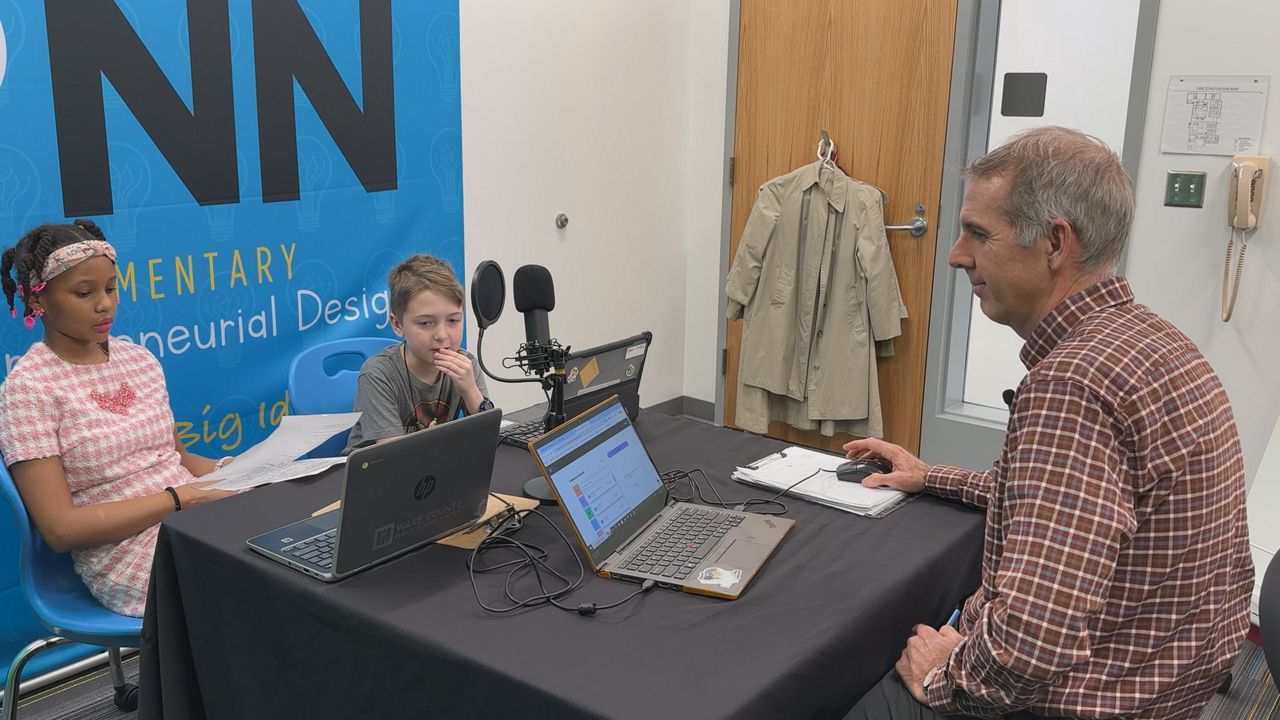
In January, the Department of Public Instruction released a guidebook outlining recommendations for incorporating artificial intelligence in schools. It advocates for integrating AI literacy across all grade levels in a responsible way.
While concerns over cheating persist, Brick sees parallels between AI and the impact of other technological advancements on education. She believes AI is not the enemy, and it’s up to educators to pose higher level questions that prompt higher level thinking from students.
“When Google came out with the search engine, it was going to be like ‘oh, kids are going to just start cheating.’ But it’s not so much that they’re going to cheat. It’s that we’ve got to ask those questions that are not your standard, is it A, B, C or D,” Brick said. “We have to give a little bit more thought generating critical thinking prompts to our kids, and AI can help that.”
As educators explore the best practices for AI, the possibilities are thrilling, but any decision also requires thoughtful deliberation.
"I would like to think we are definitely near the top and always looking to try and practice new things," Gridley said. "Every Monday all of our teacher teams meet, and we talk about how we can embed different and new strategies."





?wid=320&hei=180&$wide-bg$)


